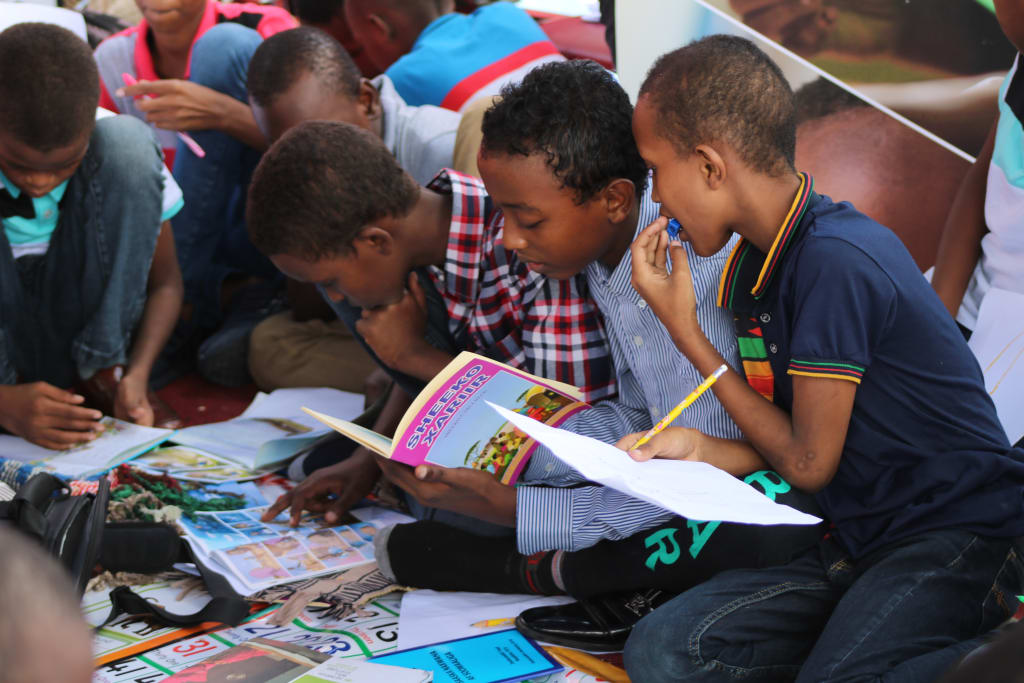Breaking Barriers: Inclusive Education for All
Embracing Diversity, Fostering Belonging: The Power of Inclusive Education

Education is not a privilege reserved for a select few; it is a fundamental right that should be accessible to every individual, regardless of their abilities, backgrounds, or circumstances. Inclusive education aims to break down barriers and create a learning environment that embraces diversity, fosters equal opportunities, and celebrates the unique strengths of each learner. It is a transformative approach that has the power to shape a more inclusive and equitable society.
Traditionally, education systems have often excluded students with disabilities, learning differences, or special needs. They have faced physical, social, and academic barriers that hindered their participation and impeded their academic and personal growth. However, the paradigm is shifting, and inclusive education is gaining momentum worldwide.
At the heart of inclusive education is the belief that every student has the right to learn in a supportive and inclusive environment alongside their peers. This means providing necessary accommodations, modifications, and support systems to ensure that students with diverse abilities can fully participate in all aspects of education. Inclusive classrooms promote collaboration, empathy, and mutual respect, cultivating an inclusive culture that benefits all students.
Inclusive education goes beyond physical accessibility. It also addresses attitudinal and social barriers that may exclude students based on their race, ethnicity, socio-economic status, language, or gender identity. It requires educators to cultivate a welcoming and accepting environment, where diversity is celebrated and every student is valued for who they are. This not only promotes a sense of belonging but also nurtures cultural competence and empathy among students.
One of the key principles of inclusive education is individualized support. Recognizing that every student has unique learning needs, educators strive to provide personalized instruction and accommodations that promote success for all learners. This may involve differentiated instruction, assistive technologies, or additional support from specialized professionals such as speech therapists or learning support specialists. By tailoring the learning experience to individual needs, inclusive education maximizes the potential of each student and ensures that no one is left behind.
Inclusive education also extends beyond the classroom walls. It calls for collaboration among educators, parents, and the community to create a network of support for students with diverse needs. This collaborative approach fosters a holistic understanding of each student, allowing for comprehensive support systems that address academic, social, and emotional well-being. It also encourages partnerships with community organizations and businesses to provide real-world learning opportunities and promote inclusion beyond the school environment.
Implementing inclusive education requires commitment and investment in teacher training and professional development. Educators need to be equipped with the knowledge, skills, and strategies to address the diverse needs of their students effectively. Training programs and ongoing support can empower educators to create inclusive classrooms where all students thrive.
While inclusive education has made significant progress, there are still challenges to overcome. Inadequate resources, lack of awareness, and societal prejudices can impede the full realization of inclusive education's potential. Collaboration between governments, policymakers, educators, and advocacy groups is essential to address these challenges and ensure that inclusive education becomes a reality for all.
In conclusion, inclusive education is a powerful force that breaks down barriers, empowers students, and fosters a society that celebrates diversity and equality. By embracing inclusive education, we can create educational environments that are accessible, welcoming, and supportive for all learners. It is not just about providing equal access to education; it is about creating a society that values and embraces the unique contributions of every individual. Together, let us break down barriers and build a future where inclusive education is the cornerstone of a more inclusive and equitable world.
About the Creator
David Mugo Kamau
David Mugo Kamau: Nairobi-based animator, father to Melissa Ngatha Mugo, studied at Eureka Primary School and Shang Tao Arts and 3D Animation College. Passionate about creativity, family, and personal growth.






Comments
There are no comments for this story
Be the first to respond and start the conversation.